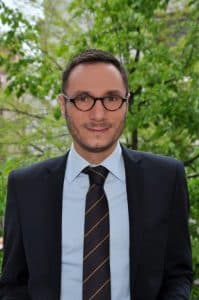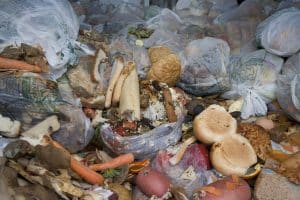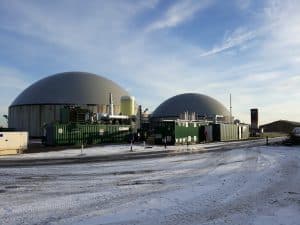Running an AD plant: Lessons from Germany
 Ahead of his presentations at the World Biogas Summit and UK AD & World Biogas Expo 2019, Swen Grossgebauer, Local Authority Development Manager at MVV Environment, shares his experience of running a healthy anaerobic digestion (AD) plant in Germany.
Ahead of his presentations at the World Biogas Summit and UK AD & World Biogas Expo 2019, Swen Grossgebauer, Local Authority Development Manager at MVV Environment, shares his experience of running a healthy anaerobic digestion (AD) plant in Germany.
What are the most important factors to consider in the design of AD plants?
Location is key: the site should span at least 2 hectares with good road access for lorry delivery and contractors within reasonable distance to receive the digestate for further processing or distribution. Some of the most common environmental challenges for plants include ground water protection and odour emissions, and so these issues should be given special attention during plant design.
Why are high levels of plant performance so important?
The AD process is in competition with alternative waste treatment processes such as energy-from-waste facilities and composting. The cost of separate food waste collection and pre-treatment will reduce the acceptable costs for the AD process, meaning that high levels of plant performance with a high level of biogas production are needed.
 How does treating food waste compare to treating agricultural waste in terms of plant operation?
How does treating food waste compare to treating agricultural waste in terms of plant operation?
The preferred digestion technologies for food waste and agricultural waste are different, especially with regard to waste handling and the stirring design. To achieve a smooth operation with a high biogas production rate, it’s essential to carry out a good composition analysis before determining the technology concept to be used.
How do you foresee the AD market in Germany developing over the coming years?
Statutory subsidies for renewable energy generation from virgin biomass were reduced significantly in 2014, with the result that very few new crop-fed AD plants have been developed since then. In contrast, the AD market for food waste digestion is growing, although separate food waste collections have not yet been implemented by all councils and the main treatment technology for collected food waste is still composting. How substitution of composting plants with AD plants will progress in the future strongly depends on future policy as well as direct and indirect incentives.
 What can other countries learn from the AD market in Germany?
What can other countries learn from the AD market in Germany?
Long-term security over incentives is necessary to attract investment and support existing facilities. The priority of feeding renewable energy rather than fossil fuels into the grid has accelerated investment in renewables faster than expected. Biogas injection into the national gas grid is currently supported in both the UK and Germany, and this allows for decentralised and efficient use of biogas.
You can hear more from Swen at the World Biogas Summit and UK AD & World Biogas Expo 2019 on 3rd-4th July 2019 at the NEC in Birmingham, UK.


